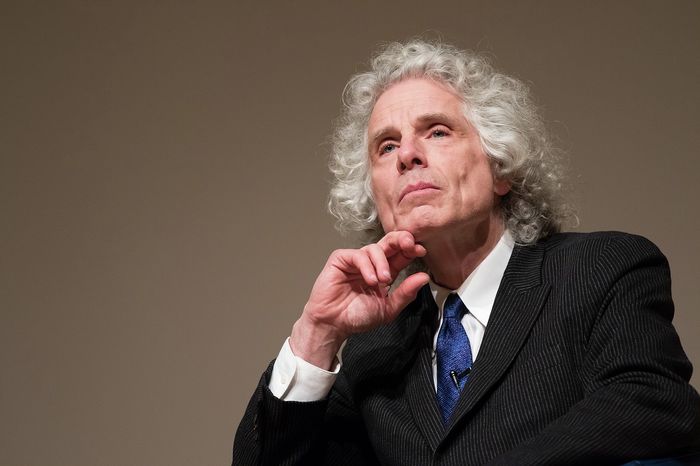Jan-Werner Müller on democracy and its institutions
Ming Kit Wong speaks to Jan-Werner Müller, Professor of Politics at Princeton University, about his upcoming book Democracy Rules

Over the last few years people have raised concerns about the future of democracy. Most recently, many scholars of democracy have declared that American democracy “is now at risk”. Do you think democracy is under threat?
Let me give a very clear answer: yes and no. My book is partly prompted by concerns about the fate of democracy in the 21st century. As you say, many people have been articulating those worries in the past couple of years. At the same time, it’s not meant to be yet another ‘crisis of democracy’ book. My worry for a long time has been that if all we ever do is respond in the moment to particular perceptions of threat, we are more likely to lose sight of the basics. To be sure, we have intuitions about political perils - ‘Trump is a threat’, or ‘Boris Johnson appears to be dangerous’ - but very often without a firm framework which can generate plausible judgments about what is really a crisis. If you look at it historically there is ‘crisis talk’ almost all the time: look no further than Cambridge and consider David Runciman’s book on democracy in crisis. It shows us very clearly that there have been waves of anxiety, most prominently during the 1970s.
“It is conventional wisdom to say that these institutions are in crisis, but we lack a sense of what exactly democracies need from those institutions in the first place”
My project has been to respond to the moment, for sure, but also to go back to some basics and to try to reorient our perspective. In recent years, there has been a tendency to blame the people - ‘it was the irrational masses who brought Brexit upon themselves, who brought Trump upon themselves’. It has been very convenient for liberals to indulge in 19th century-style clichés that everybody is irrational and easily seduced by the great demagogue. Another tendency is of course to say that it’s all the fault of particular elites. These are very different perspectives, to be sure, but they share the common assumption that the problem is with particular groups of people, be it the many or the few. I’m not saying this is completely wrong, but we should pay more attention to institutions and the principles that should animate them.
In reinstating a more institutional approach to democratic studies, what arguments do you make in your book?
The institutions I was most concerned about were those that, since the 19th century, were considered to be crucial to make representative democracy work, which is to say: political parties and professional media organisations. It is conventional wisdom to say that these institutions are in crisis, but we lack a sense of what exactly democracies need from those institutions in the first place. There are of course important differences between countries’ different media and party systems, but in general I’d point to three issues:
It remains important that these institutions are autonomous: in a sense, what you see should really be what you should get. A political party should not be the instrument of an oligarch, and a media outlet should not be a front for something else. In the United States, for instance, there are now pseudo-newspapers which claim to be local newspapers that are funded by political entities. So, it’s not a trivial concern that you might not be getting what you’re seeing.
The party system and media system should also be relatively accessible. One of the virtues of democracy is that it is an open, dynamic, and potentially creative system. And if these institutions close themselves off, then prima facie democracy will face a problem.
Beyond being autonomous and accessible, these institutions should also be ′assessable’. It is important that citizens have a sense of what’s what, and that partly includes an assessment of how these institutions work internally: whether they are genuinely pluralistic or have genuine intra-party democracy, for instance, and above all who finances them. There has been a tendency in Europe to turn up our noses at the ‘crazy Americans’ because it’s so obviously insane that $14 billion is spent in federal elections in one year. But if you look more closely in Europe at how the financing of parties and media works, it’s very problematic from a democratic theory point of view. I pick up an argument developed by American constitutional lawyers that individuals should have the right to decide how to finance the critical infrastructure of democracy. Every citizen should have something like a voucher to be able to decide how they want to use that: if you’re into local journalism you should be able to finance that, and if you want to finance more celebrity investigations by Murdoch that’s fine too. But each individual should be able to decide what kind of media they want to finance, and this applies to political parties too.
“Personally, I don’t think there’s anything wrong with having a sceptical view, as long as you are sceptical about your own scepticism at the same time”
You have written in the past about Cold War liberalism: do we need more of this form of liberalism, which is sceptical about its own position, rather than one which focuses on high ideals?
Broadly speaking, I think what is clearly different today from the Cold War is that those who challenge liberal democracy don’t really have a philosophically or intellectually sophisticated agenda. If you think about Cold War liberals, they took their enemies seriously: they were obviously anti-Communist, but they nevertheless often said very positive things about Marx himself and regarded Marxism as a serious challenge. Isaiah Berlin famously taught that we can learn from our enemies in important ways. But I don’t really see where the sophisticated anti-liberal or anti-democratic types of thinking can be found today. Self-declared illiberal democrats such as Viktor Orbán of Hungary and others very often get away with still passing as proper democrats. What they de facto have done is to systematically infringe basic democratic rights. These anti-democratic figures are simply holding their hands up and saying, ‘we’re not against democracy at all, we just have a slightly different understanding of democracy’. There’s no real foundational disagreement here, and in this sense it’s quite different from the Cold War. Personally, I don’t think there’s anything wrong with having a sceptical view, as long as you are sceptical about your own scepticism at the same time.
But I also don’t find it particularly helpful when liberals say things like ‘we have to be optimistic again’ and ‘liberalism has to paint a positive picture of the world’. It’s not obviously wrong, but it sounds so much like a PR exercise; it doesn’t respond to or offer anything substantive. It makes it sound like all our problems are a question of subjective attitudes. But a lot of these problems are real, and we’re not going to solve them by telling people that they should wave more European Union flags. Unless we have a more nuanced account of how political institutions work, and who benefits from them and who doesn’t, and what might justify them, I think it’s a cop-out to fall back on collective psychology as the main issue.
Professor Müller’s book, Democracy Rules, will be published by Penguin UK in July 2021.
 News / Colleges charge different rents for the same Castle Street accommodation2 March 2026
News / Colleges charge different rents for the same Castle Street accommodation2 March 2026 News / King’s hosts open iftar for Ramadan3 March 2026
News / King’s hosts open iftar for Ramadan3 March 2026 Theatre / Lunatics and leisure centres 4 March 2026
Theatre / Lunatics and leisure centres 4 March 2026 News / Angela Merkel among Cambridge honorary degree nominees27 February 2026
News / Angela Merkel among Cambridge honorary degree nominees27 February 2026 News / News in Brief: waterworks, wine woes, and workplace wins 1 March 2026
News / News in Brief: waterworks, wine woes, and workplace wins 1 March 2026








